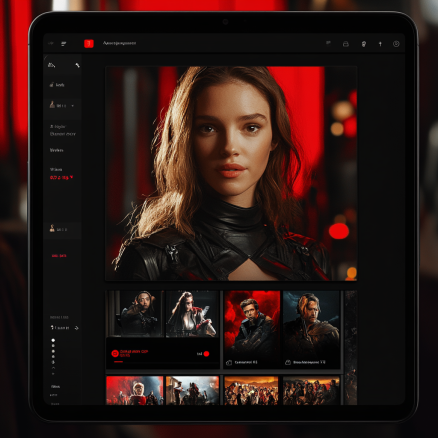I was recruiting for a DeFi client, and one of the candidates—sharp as a tack—casually dropped a name I hadn’t heard before: Functionland. He said, “If decentralised storage really takes off, keep an eye on these folks.” Back then, it felt like everyone was either building Layer 1s, aping into JPEGs, or chasing yields. Storage? Not exactly the sexiest slice of Web3. But that line stuck with me—especially now, as Functionland emerges as a serious contender in the decentralised storage space.
Fast forward to today, and Functionland emerges as a legit leader in the decentralised storage space. Not just a niche project—it’s now sparking serious conversations around how we own, store, and monetise data. If you haven’t been paying attention, you might want to start.
The Big Shift: From Data Renters to Data Owners
Let’s be real—we’ve all become way too comfortable with Big Tech storing our digital lives. Our photos, documents, and personal data live in the cloud. But whose cloud is it, really?
Functionland flips that whole model. With their Fula network and Box hardware, they’re pushing for true data ownership. No monthly fees. No central server farms. Just peer-to-peer file storage powered by decentralised tech and owned by the users.
I remember chatting with a back-end engineer who built their own home node to test Functionland’s system. “It felt like I was finally unplugging from the matrix,” he said. No hyperbole there. The idea that your family photos, code repos, or design files don’t have to sit on Google or AWS? That’s powerful.
Developer Adoption Is Heating Up
Functionland’s real magic? It’s not just the tech; it’s the developer traction. I’ve seen this story before—protocols that build quietly, prioritise dev experience, and suddenly hit critical mass. That’s where Functionland is right now.
They’ve made onboarding for devs ridiculously smooth. Want to build an app that leverages decentralised storage without reinventing the wheel? Their SDK makes it plug-and-play. That kind of simplicity attracts the right kind of builders: pragmatic, open-source-first, and deeply aligned with Web3 values.
A dev I placed at a competing decentralised storage company admitted, “Functionland nailed what we tried to do. They actually made it usable.”
Monetising with Value Blocks
One of the biggest questions I get from candidates is: “Where’s the money in decentralised infra?” Fair. It’s a space full of idealism but often light on clear business models.
Functionland’s answer? Value Blocks.
Think of it as tokenised storage economics. Users can earn rewards for hosting data, but creators and developers also get a cut when their apps or content are used. It creates a circular economy where everyone benefits from participation. No ads. No selling your data. Just value exchanged directly.
It reminds me of the early days of Helium, before things got bloated. There was real enthusiasm, not just speculation. Functionland seems to be keeping that spirit alive—but grounded in actual utility.
Community Energy Feels Organic, Not Forced
I’ve seen plenty of communities launched with flashy airdrops, Discord shills, and a thin veneer of engagement. But Functionland’s community feels different. More builders, more open-source contributors, more thoughtful dialogue.
When I was sourcing engineers for a decentralised protocol last month, I noticed how many were already contributing to Functionland repos in their spare time. That’s the signal. No one gets paid to star a repo or write a decent issue ticket. It happens because they care.
That kind of community momentum is a hiring dream. I’d rather recruit from a contributor pool like that than chase unicorns with fancy resumes and no ethos alignment.
Why It Matters for the Future of Work
If you care about digital sovereignty, this stuff isn’t niche. It’s the foundation.
Functionland’s model doesn’t just give users control over their data; it rethinks how creators and developers get rewarded. It’s infrastructure designed for the freelance economy, the creator economy, the “I-don’t-want-to-be-a-product” economy.
We talk a lot in Web3 about owning your assets. But what about your memories? Your designs? Your intellectual property? Functionland makes that ownership tangible.
Functionland emerges not with hype, but with substance. As someone who’s spent years knee-deep in the talent trenches of Web3, I can tell you: when the right engineers start paying attention to a protocol, it’s worth watching.
The storage wars aren’t just between Dropbox and Google Drive anymore. They’re playing out across peer-to-peer networks, sovereign devices, and tokenised ecosystems. And Functionland isn’t just in the game—they’re shaping the next play.
If you’re a developer, a founder, or just someone tired of renting your data from Big Tech, it might be time to look into the Box. Because the future of storage isn’t centralised—and it might just live in your living room.




